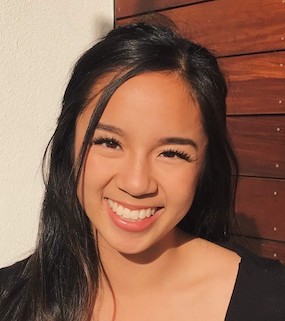Throngs of students came to De Anza College’s HinsonCampus Center last Monday to hear Farai Chideya, multimediajournalist and author of three books, speak about the importance ofvoting. Conference rooms A and B were almost completely full, withmany late arrivals lining the walls. Most students came becausetheir classes required it, but later left feeling they gotsomething out of it. “It encouraged me to vote,” saidChris So, a student whose English 1A teacher required students toattend the speech. Right after graduating from Harvard, Chideyabegan working for Newsweek. She has a morning talk show on FM 91.7and is the author of “Don’t Believe the Hype: FightingCultural Misinformation About African Americans,” “TheColor of Our Future,” and “Trust: Reaching the 100Million Missing Voters.” At the conference, Chideya saidpeople make the mistake of calling American democracy just”democracy,” implying there is only one type and onecorrect way of doing things. “There are so many differentways that people try to implement this one ideal, this ideal ofallowing individuals to speak collectively,” Chideya said.”This central idea that government should be by the peopleand for the people is not one that the United States owns and notone that the United States practices perfectly.” Chideya alsosaid America has wonderful principles, but people pay the pricewhen leaders don’t act on those principles. She said the 2004presidential election is a pivotal point in defining whatAmerica’s principles are and an opportunity to select aleader that will actually uphold them. “You will beinherently deeply affected by what happens in this country in 2004,as well as your friends and relatives overseas, if you haveany,” Chideya said. “Whatever we collectively decide todo here in the United States is going to have a ripple effect thatwill last for generations and spread around the world.”During a question-and-answer session after the speech, studentsproved they hadn’t been just pretending to listen. Onestudent asked whether young peoples’ votes really do count.Chideya said they do because politicians cater to people who vote,and if they see a raise in percentage of young voters they wouldpay more attention to their issues in future elections. Anotherasked whether the reason people are not voting is becauseit’s too much of a burden to become informed. Chideyaanswered that voting is hard work sometimes, but it’s thebetter thing to do. “You can kind of imagine a politician assomeone who is driving a car, steering with his knees, smoking acigarette, and eating a bowl of cereal,” Chideya said.”Wouldn’t you rather actually take the wheel than justcover your eyes?” A voter registration table was set up inconference rooms A and B during the speech and offered free giftsto people who attended. Only a few people who came to theconference got forms because most were already registered. Afterher speech, Chideya stayed to talk to students, answer furtherquestions, and signing her new book. “Whatever happens thiselection, don’t give up on the political process,”Chideya said when asked what would be the one thing she’dlike De Anza students to know. “Vote now and stay engaged,because it’s not a sprint, it’s a marathon.”
Categories:
Driving a road to the future
Political commentator and author offers students a reason why voting is
October 18, 2004
Story continues below advertisement
More to Discover










